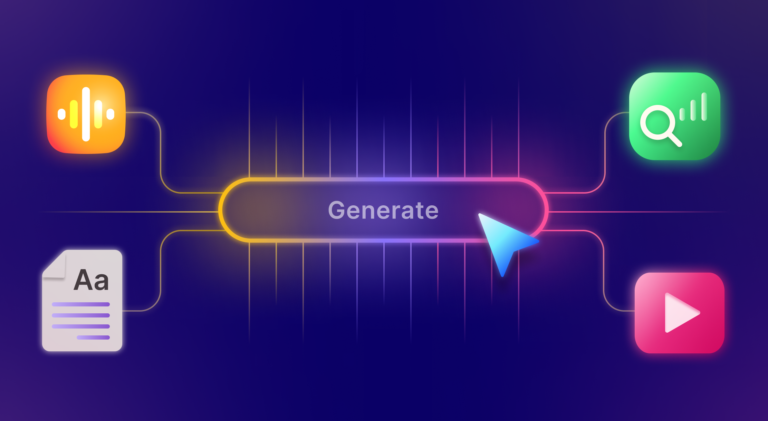
A good SEO strategy should typically cover both on-page and technical SEO aspects. However, a study by SEMrush finds many common technical SEO issues that many are unaware of. Because the technical side of SEO is ‘complicated,’ website owners tend to only focus on the on-page SEO.
To help you unravel what technical SEO means and understand how you can use it for your website, here is a quick guide to get you started:
What is technical SEO?

Technical SEO guide is of pivotal importance. It is essentially the strategy and process of optimizing the website’s backend or technical aspects to ensure that search engines can easily crawl, index, and render it. The processes of technical SEO involve components like:
- Website sitemaps
- Schema
- Load speed
- URL structure
- Site navigation and more
As technical SEO requires an understanding of the website backend, codes, and other technical aspects, separate teams within marketing work on on-page SEO aspects. In contrast, the technical-focused teams work on technical or off-page SEO requirements.
Importance of Technical SEO for Your Business

Even today, the biggest misconception in the industry is that SEO is all about keywords and content optimization, which leads to a lack of focus on the backend of technical aspects of the website. Engaging content is helpful and requires attention, but while content helps impress and convert your audience, technical SEO will help them find the page.
On-page SEO is targeted at your audience, whereas technical SEO focuses primarily on search engines. However, it is also essential to ensure a stellar experience for your website’s visitors. It covers aspects like website navigation, page load speed, mobile friendliness, and other functionalities that help you rank higher and impact the overall experience of your website’s visitors.
What Good Technical SEO Looks Like
Now that we have understood the importance of technical SEO let us understand how it functions. In simplistic terms, technical SEO covers three critical aspects of your website,
- Performance
- Crawlability
- Indexing
Here is a deep dive into each of these aspects:
1. Optimizing website performance
Technical SEO starts with optimizing the website’s performance. A few key activities include:
- Page Speed: Understanding how much time it takes to load a particular page and optimizing JavaScript and CSS to ensure it can load faster. The longer it takes to load a page, the higher the chances of bounces, impacting ranking.
- Responsive design: Ensuring that your user experience (UX) is smooth on all devices and browsers
- HTTPS certificate: Ensures that your website uses the encrypted version of HTTP, making it safer from attackers and hacks. New browsers and search engines favor websites with HTTPS, as it provides integrity, confidentiality, and secure authentication.
- Mobile-friendliness: Understands how well the website works on mobile. It can easily be optimized using Google Search Console.
2. Optimizing crawlability
Crawlers are algorithms that can understand content from your pages to help identify links on these pages to find other pages and understand your website’s navigation. To optimize crawling, technical SEO encompasses activities like:
- Robots.txt: This file is a note to search engines on what they can and cannot do on your site.
- Access Restrictions: You can restrict access to a page by using login systems, HTTPS authentication, or IP whitelisting to prevent search engines from finding a page.
- XML Sitemap: Provides a clear structure for the search engine to navigate your site. A sitemap is also ideal for on-page optimization. It helps marketers define usability and navigation for the website visitor, helping them find information without getting lost in the barrage of pages.
3. Optimizing Indexing
Indexing is the ideal next step to crawling. Once Googlebot crawls on your website, it will start storing content and information in particular indexes, which helps the search engine pull the right results when a specific user is searching for similar terms. For ensuring that your website indexing is optimum, provide that:
- There are no dead links or non-existing pages on your website.
- There are no duplicate content issues on your website. Sometimes marketers will create landing pages for specific campaigns but forget about it later, leading to duplicate content that may confuse search engines.
- Your website’s URLs are optimized to feature each page’s primary keyword or title.
- It is redirecting them to current pages.
- Use hreflang tags to help your search engine define the page for country and language, primarily if your website caters to multiple countries and languages.
While many more activities can be done to optimize the technical SEO of a website, this guide covers the basics to help you get started. Technical SEO is not just about working in tandem, but the combination of SEO professionals, developers, and designers. While it is not a quick fix or something that you can master in a day or two, consistent effort and dedicated optimization can yield excellent results. So start optimizing both the on-page and technical side of SEO today to help you gain the right results soon.
FAQs
Technical SEO is essentially optimizing the technical aspects of your website, ensuring that it is in line with algorithms of modern search engines and easy for crawlers to understand and index effectively.
While learning SEO depends on your level of understanding about how SEO works, your willingness to spend time learning, and the resources you use, it can take roughly 4 – 6 weeks to learn the basics and up to 5 years to master.
Although the fundamentals of technical SEO aren’t too difficult to understand and implement, it can get complicated when working on it. Since it deals with the backend of your website, it takes patience and continuous optimization to get it right.
Some of the top issues that can negatively impact technical SEO include:
– Duplicate content on websites
– Poor mobile optimization
– Improper link building
– Complex navigation
– No alt-text for images
– URLs that are not SEO-optimized
– Slow load time
– Heavy dependence on Flash and other outdated platforms
Latest Blogs
Explore how Google’s 2025 AI search updates triggered ranking chaos. Learn actionable strategies to adapt your SEO for AI Overviews, zero-click searches, and SERP volatility. Stay ahead now.
Learn how to rank on AI search engines like ChatGPT, Perplexity, and Gemini by optimizing your content for authority, structure, and relevance. Stay ahead in AI-driven search with this strategic guide.
Explore the best healthcare SEO services for your medical practice. Improve online visibility and effectively reach more patients in need of your services.
Get your hands on the latest news!
Similar Posts

Artificial Intelligence
6 mins read
The Role of AI in Digital Marketing: AI Article Generators Transforming Content Creation

Artificial Intelligence
4 mins read
How AI Content Creator Is Shaping the Future of Digital Content

Digital Marketing
3 mins read